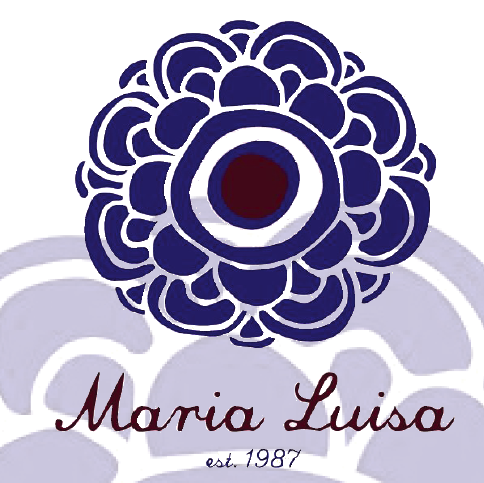 Earth Matters focuses on conservation, sustainability, recycling and healthy living. This weekly series is brought to you by Maria Luisa Boutique.
Earth Matters focuses on conservation, sustainability, recycling and healthy living. This weekly series is brought to you by Maria Luisa Boutique.
If Earth Matters to you, sign up for our mailing list and get the next installment delivered bright to your inbox.
by Glenn Sungela
New York State’s ban on single-use plastic bags went into effect on March 1. Ten days later, how have Nyack merchants and their customers adapted? To help find out, Joel Newton, leader of the Waste Management Working Group within Nyack’s Sustainability Committee, asked the Environmental Club at Nyack High School if they could come out and canvass the neighborhood. “The purpose of the canvassing was to assess the readiness for and attitudes toward the plastic bag ban among Nyack businesses, and to ask merchants to post signs and counter tents about the importance of reusable bags over both plastic and paper,” said Newton.
The students’ work builds on efforts last year to sell reusable shopping bags made of recycled cotton. Those bags featured the club’s legendary sea turtle logo, designed by Julia Tscherne. Enough money was made to purchase more bags, which we were given to shoppers at the Nyack Farmers Market.
On a chilly and windy Thursday afternoon, nine 10th, 11th, and 12th grade students visited local businesses, including restaurants, take out eateries, shops, and a pharmacy. Equipped with clipboards and intake forms they spoke with business owners and workers and collected data on the types of bags businesses switched to and if they were charging for alternative bags.

Photo by Glenn Sungela
The students also asked merchants if they would post signs and tent cards reminding customers to bring their own reusable bags. “It was a good and effective experience because we got to talk to the owners directly, and got their input on the spot, so we knew their responses were honest and unplanned,” said Environmental Club Co-President Eduarda Costa. “And they were all very interested. They knew about the ban, and they were overall happy to make the switch and consider reusable bags. Some store owners already had reusable bags.”
Upon reviewing the data the students collected, Newton observed:
- “By and large, many merchants are happy to encourage reusable bags, not only to save money but also out of a sense of environmental responsibility.”
- “There is no consensus on the question of a paper bag fee; some business owners were against it out of fear of turning off customers. Others liked the idea if all businesses participate.”
- “One owner thought charging for alternative bags such as paper was not fair to less affluent customers who are used to the ease of plastic and use them at home for wastebaskets.”

Nyack High Environmental Club students showing their school-branded signs urging consumers to bring their own reusable bags. / Photo by Glenn Sungela
Tom Perry, the Environmental Club’s Faculty Advisor, said, “The best part about these activities is that they give young people hope, and the knowledge that they are making a difference. It can be very depressing to hear all the bad news about global climate change, and plastic everywhere. But if you are trying to do something about it, even something small, it gives you the optimism and energy to keep working for a better future.”
How does New York’s ban compare with other states’?
Other states that ban or limit single-use plastic bags are Connecticut, Delaware, Maine, and Oregon. While their legislation is similar to New York’s there are some key differences:
- In New York, the legislation does not apply to residents who are recipients of the federal Supplement Nutrition Assistance Program (SNAP) or Special Supplemental Nutrition Program for Women, Infants, and Children (WIC). In Connecticut the ban applies to all residents.
- Connecticut’s legislation imposes a $0.10 fee per single-use plastic bag. New York allows counties, towns, and villages to collect a $0.05 fee for paper bags.
- Among the exemptions with New York’s law are plastic bags for take-out food. In Connecticut, plastic bags for take-out food are not exempt.
- Delaware’s plastic bag ban only applies to stores with 7,000 or more square feet, and chain stores with three stores each larger than 3,000 square feet. Paper and reusable bags have a $0.10 fee.
- Oregon requires retailers to charge $0.05 for each paper or reusable bag they provide.

The Maria Luisa Boutique and Murray’s Deli are two of several local businesses who agreed to participate in the Nyack BYOB campaign. / Photo by Joel Newton.
More states are considering controls on single-use plastic bags, and there are numerous bans on plastic bags and other single-use items at local levels (e.g. counties, towns, and villages).
So, paper or plastic?
Answer: none of the above.
Bags which have small carbon footprints during their manufacturing process and which can be used over and over and over again are best.
See also:
Read Earth Matters every Wednesday on Nyack News And Views, or sign up for the Earth Matters mailing list.
Earth Matters focuses on conservation, sustainability, recycling and healthy living. This weekly series is brought to you by Maria Luisa Boutique.









